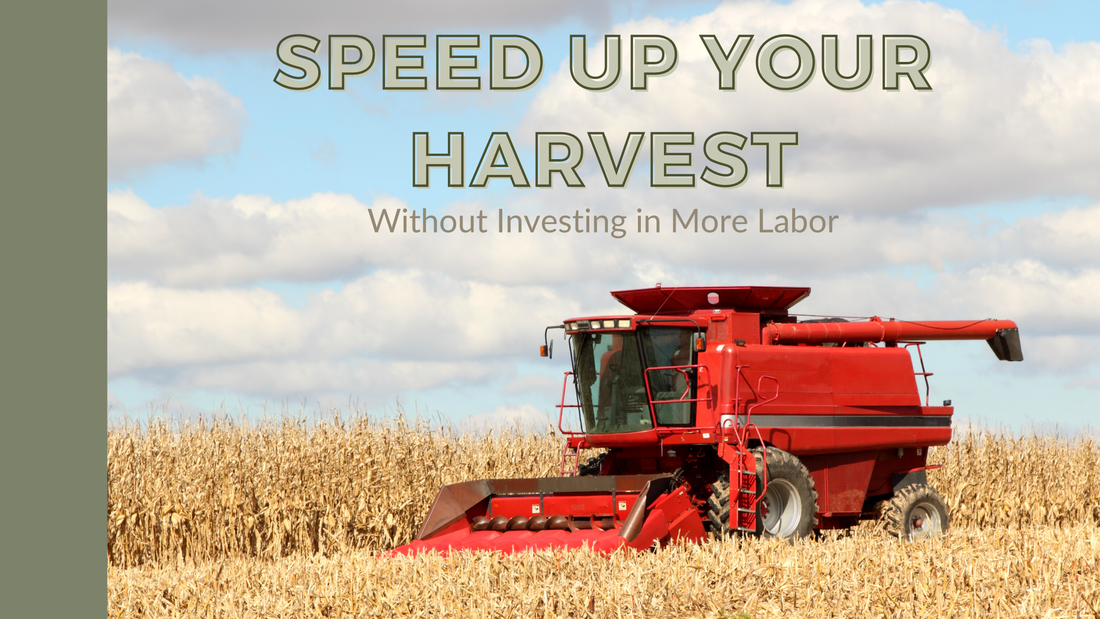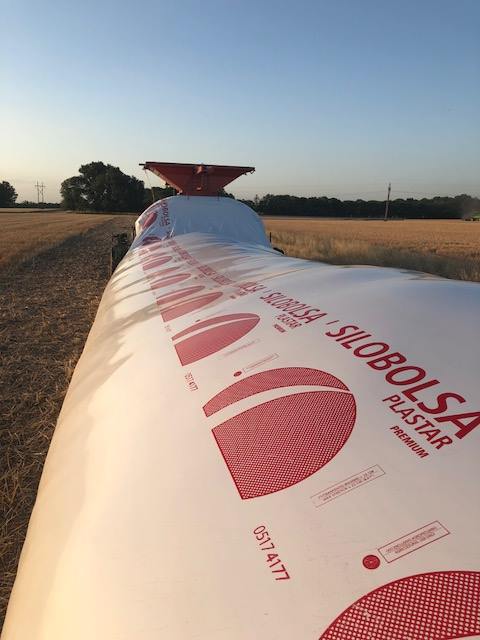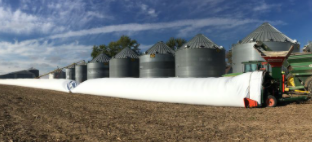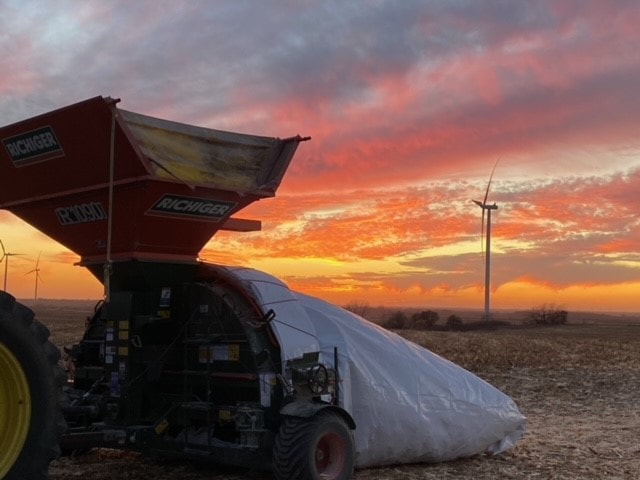|
Many industries, including Agriculture are experiencing issues with a labor shortage. If you are wondering how you could speed up harvest without investing in more help and more trucks, there’s something you should consider. Oxygen free grain storage, or grain bagging, can help. With grain bagging you will be able to harvest now, store grain for an extended period of time with no degradation to your grain quality. But what exactly is oxygen free storage? Lets get scientific. Inside a grain bag is your grain, and whatever quality it goes in at, is what it will come out at. How does this occur? First, aerobic bacteria that is on your grain will use up the free oxygen available in the bag. While it does this, the bacteria are expelling Carbon Dioxide, which increases C02. Because of this, there is a decrease of deterioration in your grain, as well as controlling mold and insect infestation-because bugs cannot live without oxygen. There is no decrease in grain grade due to shrink (like in a grain bin) or oxygen degradation. So essentially there is not much going on inside the grain bag except protection from the outside world, which is just what you want. Why wont I need extra labor? You wont need extra labor if you add a grain bagger in your mix because one person can run a grain bagger, and they don’t even necessarily have to be running just the bagger, the help you already have running the tractor with a grain cart can hop off and run the grain bagger while its getting dumped into. Why wont I need extra trucks or truck drivers? Grain bagging allows you to bag wherever you are harvesting, along the side of the field or your place of choice. This way, you can dump from your grain cart right near where you are harvesting. This allows you to keep your combines running, not sitting waiting on trucks which seem to be getting harder to come by. You also don’t have to drive back and forth to a bin and waste fuel.
What other benefits can I expect from bagging grain?
Listen to an Iowa Farmer discuss the value of bagging his grain with Richiger:
Comments are closed.
|




 RSS Feed
RSS Feed